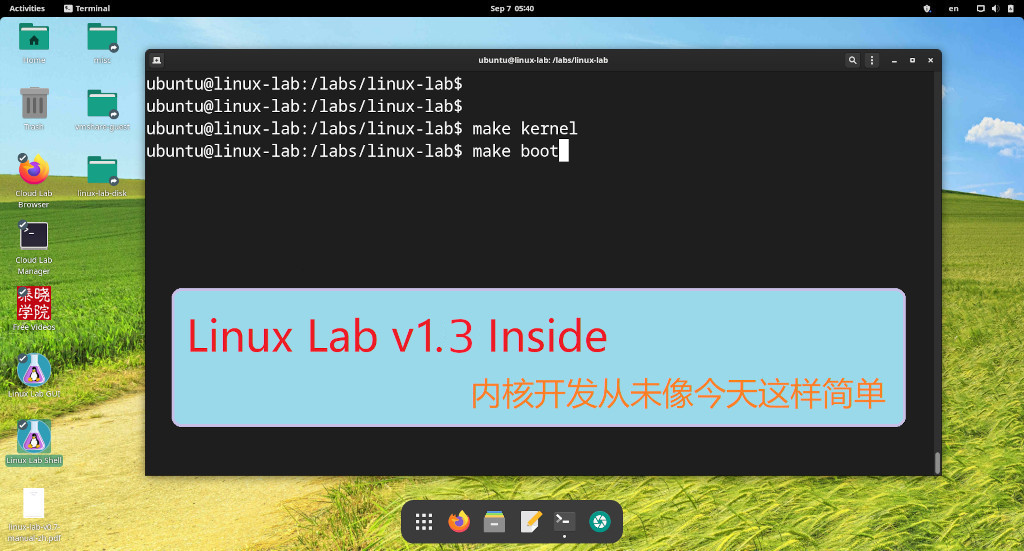[置顶] 泰晓 RISC-V 实验箱,配套 30+ 讲嵌入式 Linux 系统开发公开课
Tinyget 人工智能助手开发记录
背景
在编写 TinyGet 项目的主体部分时,我大部分的时间都在做这样的事情:
- 将包管理器的功能抽象成接口;
- 将接口实现为包管理器的命令;
在实现的过程中,难免遇到某一个功能在某一个平台上并不能按照我们的预期运行,而且用户的错误指令同样会在底层带来各式各样的异常。因此我常常在想,是否可以使用现在风头正盛的大语言模型进行辅助,在出错时为用户指出错误,并给出相应的解决方案呢?
很快我就着手实现这个想法,经过广泛的调研,我实现了一个针对包管理器的人工智能助手,取得了令人惊讶的效果。
尽管在当前的技术环境下,已经有许多基于 OpenAI 接口开发的工具,但亲自开发一个工具仍然能带来深刻的理解和学习。
技术选型
提到大语言模型,OpenAI 应该是第一选择。但是在最初的设想中,我希望这个 AI 助手可以离线运行,因此我在最开始对 OpenAI 以外的开源大模型进行了调研,其中最值得注意的就是 LLaMA 大羊驼模型。
有优秀的研究者为它进行了量化裁剪,并使用 C++ 语言开发了可以运行于大多数平台的精简版本 llama.cpp:
ggerganov/llama.cpp: Port of Facebook’s LLaMA model in C/C++ (github.com)
但是在当下的算力水平下,llama.cpp 的推理速度仍然堪忧,即便是只有 7B 规模的模型,在 M2 Macbook Pro 下,推理速度也不超过 20 token/s。而且考虑到使用 Linux 的很多终端都算力较弱,因此最终舍弃了此方案,仍采用 OpenAI 的在线模型。
接口简介
OpenAI 的接口众多,我们主要使用的有两个:
- 模型查询;
- 模型使用(就是平常使用的 ChatGPT 的后端)。
模型查询的接口格式如下:
def list_models(self) -> bool:
"""
Retrieves a list of models from the server.
:return: A boolean value indicating the success of the request.
"""
headers = {
"Authorization": f"Bearer {self.api_key}",
}
url = urljoin(self.host, "v1/models")
response = requests.get(headers=headers, url=url)
res = json.loads(response.content.decode())["data"]
return res
返回的格式如:
[{
"created": 1649358449,
"id": "babbage",
"object": "model",
"owned_by": "openai",
"parent": null,
"permission": [
{
"allow_create_engine": false,
"allow_fine_tuning": false,
"allow_logprobs": true,
"allow_sampling": true,
"allow_search_indices": false,
"allow_view": true,
"created": 1669085501,
"group": null,
"id": "modelperm-49FUp5v084tBB49tC4z8LPH5",
"is_blocking": false,
"object": "model_permission",
"organization": "*"
}
],
"root": "babbage"
},]
生成的 API 如下:
def ask(self, query: str) -> str:
"""
Executes a question by generating a completion based on the provided query.
Args:
query (str): The question or query to be asked.
Returns:
str: The generated completion as the answer to the question.
Raises:
Exception: If no model name is specified before asking a question.
"""
if self.model is None:
raise Exception("Please specify a model name before asking a question.")
messages = [
{"role": "system", "content": SYSTEM_PROMPT},
{"role": "user", "content": query},
]
result = do_completion(
host=self.host,
model=self.model,
api_key=self.api_key,
temperature=0.0,
max_tokens=self.max_tokens,
messages=messages,
)
answer = result["choices"][0]["message"]["content"]
return answer
异常处理
这里主要处理三种异常:
class ModelException(Exception):
def __init__(self, message, model, response):
"""
Initializes a new instance of the MyClass class.
Args:
message (str): The message to be passed to the superclass constructor.
model: The model to be assigned to the `model` attribute.
response: The response to be assigned to the `response` attribute.
"""
super().__init__(message)
self.model = model
self.reponse = response
class AIHelperHostError(Exception):
def __init__(self, message, host):
"""
Initializes a new instance of the class.
Args:
message (str): The message for the exception.
host (str): The host information.
Returns:
None
"""
super().__init__(message)
self.host = host
class AIHelperKeyError(Exception):
def __init__(self, message, host, key, response):
"""
Initializes a new instance of the class.
Args:
message (str): The message to display.
host (str): The host to connect to.
key (str): The key to use for authentication.
response (str): The response to expect.
Returns:
None
"""
super().__init__(message)
self.host = host
self.key = key
self.response = response
这三种异常分别对应于:模型无效、url 错误、key 错误,防止底层崩溃影响上层应用。
Prompt 编写
使用 LLM 很像与人交流,需要明确表达需求后,再约定需要 LLM 为我们做什么。经过不断实验,我完成了这样一份 Prompt,工作良好。
你是一个熟练的 Linux 专家,精通各类发行版中的包管理器,也能熟练运用各类软件包管理器的命令。 用户将会告诉你他执行的命令、命令的 stdout、命令的 stderr。 你帮助用户对当前错误进行解释,并给出建议使用的命令。注意,建议使用的命令应该严格遵循 markdown 语法。
例如,当我故意错误输入 vim 的包名时,会得到如下的信息:
tinyget install vimm
根据 stderr 的提示,你需要以 root 用户身份运行该命令。可以使用
sudo命令来提升权限,例如:sudo apt install -y vim另外,stderr 中还有一条警告信息,提示
apt命令的 CLI 接口不稳定,需要谨慎使用。如果你需要在脚本中使用apt命令,可以考虑使用apt-get命令,它的 CLI 接口更加稳定。
参考资料
猜你喜欢:
- 我要投稿:发表原创技术文章,收获福利、挚友与行业影响力
- 知识星球:独家 Linux 实战经验与技巧,订阅「Linux知识星球」
- 视频频道:泰晓学院,B 站,发布各类 Linux 视频课
- 开源小店:欢迎光临泰晓科技自营店,购物支持泰晓原创
- 技术交流:Linux 用户技术交流微信群,联系微信号:tinylab
| 支付宝打赏 ¥9.68元 | 微信打赏 ¥9.68元 | |
 |  请作者喝杯咖啡吧 |  |


